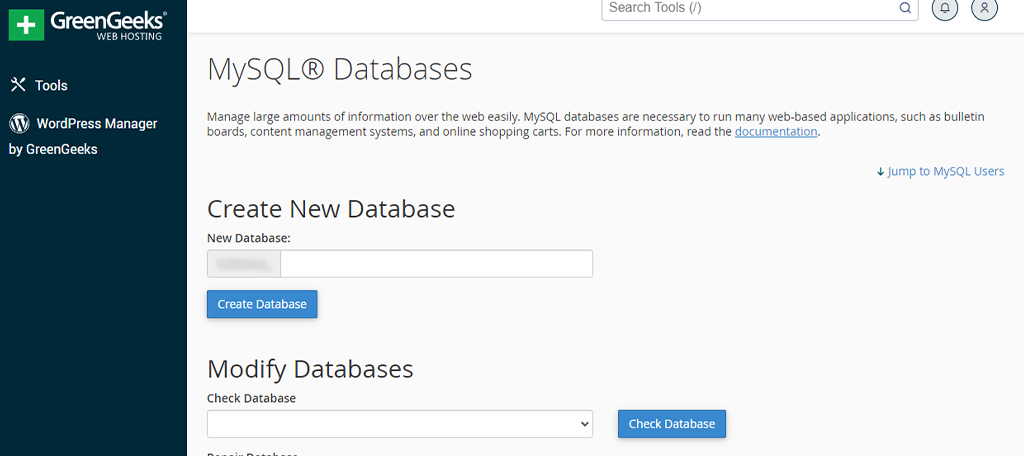What is MySQL in WordPress?

MySQL is an open-source, powerful database management system that can be used with WordPress to store and manage data of any size. With MySQL, users can organize and access their vast databases effortlessly while ensuring speed and scalability.
MySQL is an intrinsic aspect of the WordPress platform, granting developers and users access to modify data in its database easily. Without requiring technical expertise or knowledge about coding, anyone can quickly construct and sustain their WordPress websites – making this a must-have tool for website builders.
MySQL is invaluable in building custom applications due to its user-friendly query language. Furthermore, this powerful platform’s stability, scalability, and security make it essential for any WordPress website functionality.
What Is a MySQL Database?
MySQL databases are organized collections of data saved in one or more tables. For example, WordPress tables keep specific information regarding certain information, like posts, comments, users, and settings.
Each table comprises multiple columns that save the actual values for each row inside it – as an example: its title could be stored in one column while its content is kept in another.
This combination of rows and columns forms the database’s “schema.”
By processing SQL queries, MySQL servers unlock and update necessary information stored in the database. This makes it simple for developers to access and modify data through code instead of manually manipulating it.
Moreover, MySQL databases are dynamic; they can be modified to keep up with current trends. With its reliability and unwavering performance, MySQL is fundamental when constructing a WordPress website.
Without a doubt, MySQL is an integral part of the WordPress platform. It allows users to construct custom applications and access data speedily and conveniently.
Its specific query language permits developers to craft sophisticated websites with strong performance and security features. Moreover, MySQL allows WordPress customers to stock up on information or modify it promptly whenever needed for convenience’s sake.
How Does WordPress Use MySQL?
When a user composes a new post on WordPress, their content is placed into the MySQL database table “wp_posts.” This post will be assigned an exclusive ID which can be found in its corresponding column.
In addition, metadata for each of these posts (title, author name, date published, and more) are securely stored within other separate tables so that nothing gets overlooked.
WordPress utilizes MySQL to display and retrieve content when visitors visit a website. Specifically, upon navigating to a post page, the system queries MySQL’s “wp_posts” table using the post ID to acquire necessary content and associated metadata such as categories and tags. Consequently, users can view author information too.
MySQL is the go-to database for managing user accounts and permissions in WordPress. When a person signs up on your website, their data, such as username, email address, and password, are securely stored in the “wp_users” table of the MySQL database.
Furthermore, this powerful database can find additional information like display names or profile pictures across tables.
Here is a list of some of the key MySQL tables used by WordPress:
- wp_posts: This table stores all of the content for WordPress websites, including posts, pages, and custom post types.
- wp_postmeta: This table stores metadata for each post or page, such as the post title, date published, author, and categories.
- wp_users: This table stores user account information, including usernames, email addresses, and password hashes.
- wp_usermeta: This table stores user metadata, such as the user’s display name and profile picture.
- wp_comments: This table stores all the comments made on a WordPress website.
- wp_commentmeta: This table stores metadata for each comment, such as the author’s name and email address.
- wp_terms: This table stores the categories and tags used on a WordPress website.
- wp_term_taxonomy: This table stores the relationships between terms and taxonomies, such as which posts are assigned to which categories.
- wp_term_relationships: This table stores the relationships between terms and posts, such as which posts are assigned to which categories or tags.
- wp_options: This table stores site-wide settings and configurations, such as URL, site name, and active plugins.
How MySQL Affects WordPress Performance
MySQL is a powerful tool for working with WordPress websites but can also significantly impact performance. Slow queries and inefficient indexing can cause page loading times to increase dramatically, resulting in poor user experience and potentially decreased revenue.
As such, developers should strive to optimize their MySQL queries whenever possible.
Caching data within the server’s memory can also be an effective way of improving WordPress performance. By caching frequently-accessed data into the server’s RAM, subsequent requests don’t need to query the MySQL database; they can quickly retrieve this information from the cache.
This reduces load times and improves the overall efficiency of the website.
Finally, a robust hosting solution that supports MySQL databases is essential for optimal performance. High-performance hosting solutions provide features like automatic scaling and resource optimization to ensure that WordPress websites can handle whatever traffic comes their way.
